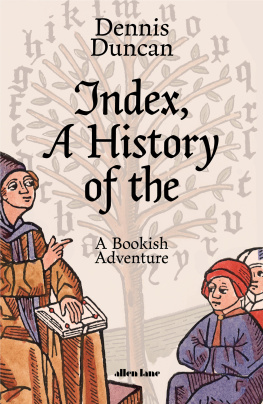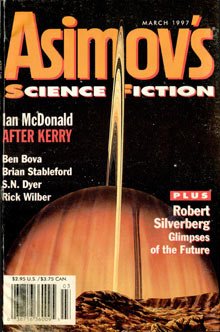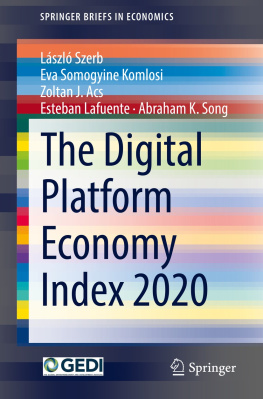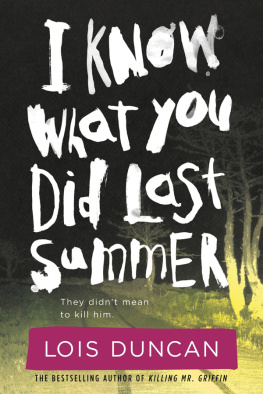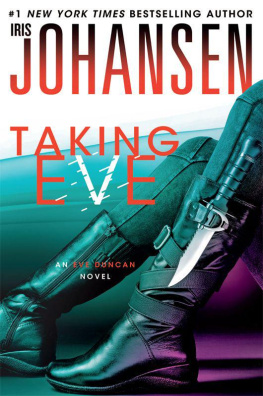Dennis Duncan
INDEX, A HISTORY OF THE
A Bookish Adventure

PENGUIN BOOKS
UK | USA | Canada | Ireland | Australia
New Zealand | India | South Africa
Penguin Books is part of the Penguin Random House group of companies whose addresses can be found at global.penguinrandomhouse.com.

First published by Allen Lane in 2021
Copyright Dennis Duncan, 2021
The moral right of the author has been asserted
Learning to Read, woodcut, Germany, c.1480
Cover photo akg-images
ISBN: 978-0-241-37424-5
This ebook is copyright material and must not be copied, reproduced, transferred, distributed, leased, licensed or publicly performed or used in any way except as specifically permitted in writing by the publishers, as allowed under the terms and conditions under which it was purchased or as strictly permitted by applicable copyright law. Any unauthorized distribution or use of this text may be a direct infringement of the authors and publishers rights and those responsible may be liable in law accordingly.
For Mia and Molly
List of Figures
The catalogue to the Independents Show, New York, April 1917. (Courtesy of the Frick Art Reference Library)
Tablet, fourteenth century BCE, showing the Ugaritic alphabet. (robertharding/Alamy Stock Photo)
Papyrus fragment, second century CE. (By permission of the British Library/Bridgeman Images)
Statuette of Euripides, second century CE . (Louvre, Paris, France/Bridgeman Images)
The opening pages of the index to John Harts Orthographie. (The Bodleian Libraries, University of Oxford. Douce H 92, ff. R4v-S1r)
Prefatory paragraph to the index to John Harts Orthographie. (The Bodleian Libraries, University of Oxford. Douce H 92, f. R4r)
Robert Grosseteste preaching to a crowd, from a thirteenth-century copy of his Chasteau damour. (Image courtesy of Lambeth Palace Library. MS 522, f. 1r)
Hugh of St Cher at his writing desk in a fresco at the convent of San Nicol. (Alamy)
Capitula to a commentary on Marks Gospel, late twelfth century. (By permission of the British Library/Bridgeman Images. Royal MS 4 B V, f. 2r)
Detail from Peter the Chanters Distinctiones Abel. (The Bodleian Libraries, University of Oxford. MS. Bodl. 820, f. 1r)
The opening of Robert Grossetestes Tabula distinctionum. (Bibliothque municipale, Lyon. MS 414, f. 17r)
Detail from Robert Grossetestes Tabula distinctionum. (Bibliothque municipale, Lyon. MS 414, f. 19v)
Robert Grossetestes copy of De Civitate Dei. (The Bodleian Libraries, University of Oxford. MS. Bodl. 198, f. 31v)
Page number in Werner Rolevincks Sermo de presentacione beatissime virginis Marie, 1470. (The Bodleian Libraries, University of Oxford. Inc. e. G3.1470.1, f. 1r)
A medieval broken link. (By permission of the Master and Fellows of St Johns College, Cambridge. MS A.12, f. 219r)
The book list for Peter Schffers press, Mainz, c. 1470. (Munich, Bayerische Staatsbibliothek)
(ac). The folding of signatures for a book.
Norman Mailers copy of William F. Buckleys The Unmaking of a Mayor. (Photograph by Stephen Mielke. Image courtesy of the Harry Ransom Center, The University of Texas at Austin. With permission from Christopher Buckley)
The first page of the multimedia table to Peter Frarins Oration. (The Bodleian Libraries, University of Oxford. Wood 800 (3) p. 10)
The publishers non-apology for the lack of an index in James Howells Proedria Basilike. (The Bodleian Libraries, University of Oxford. AA 109 Art. p. 219)
Title page of Boyle against Bentley. (Authors collection)
Charles Boyle (16741731) and Richard Bentley (16621742). (World History Archive/Alamy Stock Photo)
William Kings A Short Account of Dr Bentley, By Way of Index. (Authors collection)
William Bromley (16631732) and Joseph Addison (16721719). (ART Collection/Alamy Stock Photo)
Laurence Echard (c. 16701730). (Copyright National Portrait Gallery, London)
Index to the Dodgson familys handwritten Rectory Magazine. (Image courtesy of the Harry Ransom Center, The University of Texas at Austin)
Henry Morleys Index to Tears in Henry Mackenzies The Man of Feeling. (Authors collection)
The index to the index to Clarissa. (By permission of the British Library/Bridgeman Images)
The title page to Johnsons Dictionary of the English Language. (Album/Alamy Stock Photo)
John Fentons insignia for the Index Society. (Authors collection)
Cincinnati Public Library, 18701953. (Photo by Cincinnati Museum Center/Getty Images)
Detail from a draft sheet for the St Jacques Concordance. (Bibliothque Mazarine, MS 105, f. 1r)
First page of the Concordance to the Poetical Words of John Dryden. (By permission of the British Library/Bridgeman Images)
An advertisement for the MACREX program in The Indexer. (Reproduced by permission of the licensor through PLSclear and the British Library/Bridgeman Images)
Alejandro Cesarcos Index. (Photograph by Gill Partington)
A blind impression for compiling an index. (Photography by the author, from the collection of the Folger Shakespeare Library. H1938)
An aborted list of highlights in Thomas Youngs Englands Bane, or the Description of Drunkennesse. (Photograph by the author, from the collection of the Folger Shakespeare Library. STC 26117)
Index of Envelopes by Page Shape. (Copyright 2013 by Jen Bervin. Reprinted by permission of New Directions Publishing Corp.)
Introduction
I for my part venerate the inventor of Indexes that unknown labourer in literature who first laid open the nerves and arteries of a book.
Isaac DIsraeli, Literary Miscellanies
It is hard to imagine working with books writing an essay, a lecture, a report, a sermon without the ability to find what youre looking for, quickly and easily: without, that is, the convenience of a good index. This convenience, of course, is not confined to people who write for a living. It spills over into other disciplines, into everyday life, and some of the earliest indexes appear in legal statutes, medical texts, recipe books. The humble back-of-book index is one of those inventions that are so successful, so integrated into our daily practices, that they can often become invisible. But, like any piece of technology, the index has its history, one that, for nearly 800 years, was intimately entwined with a particular form of the book the codex: the sheaf of pages, folded and bound together at the spine. Now, however, it has entered the digital era as the key technology underpinning our online reading. The very first webpage, after all, was a subject index. Today, the index organizes our lives, and this book will chart its curious path from the monasteries and universities of Europe in the thirteenth century to the glass-and-steel HQs of Silicon Valley in the twenty-first.
A history of the index is really a story about time and knowledge and the relationship between the two. Its the story of our accelerating need to access information at speed, and of a parallel need for the contents of books to be divisible, discrete, extractable units of knowledge. This is information science, and the index is a fundamental element of that disciplines architecture. But the evolution of the index also offers us a history of reading in microcosm. It is bound up with the rise of the universities and the arrival of printing, with Enlightenment philology and punchcard computing, the emergence of the page number and of the hashtag. It is more than simply a data structure. Even today, faced with the incursions of Artificial Intelligence, the book index remains primarily the work of flesh-and-blood indexers, professionals whose job is to mediate between author and audience. The product of human labour, indexes have produced human consequences, saving heretics from the stake and keeping politicians from high office. They have also, naturally, attracted people with a special interest in books, and our roster of literary indexers will include Lewis Carroll, Virginia Woolf, Alexander Pope and Vladimir Nabokov. The compiling of indexes has not, historically, been either the most glamorous or the most lucrative of professions. We might think of Thomas Macaulays lament that Samuel Johnson, the most eminent writer of his age, nevertheless spent his days surrounded by starving pamphleteers and indexmakers. Had he but known it, Johnson might at least have consoled himself with the thought that in this company of indexers he would be surrounded by the most eminent writers of other ages too, and that, though undersung, the technology they were tinkering with would be central to the reading experience at the dawn of the next millennium.

